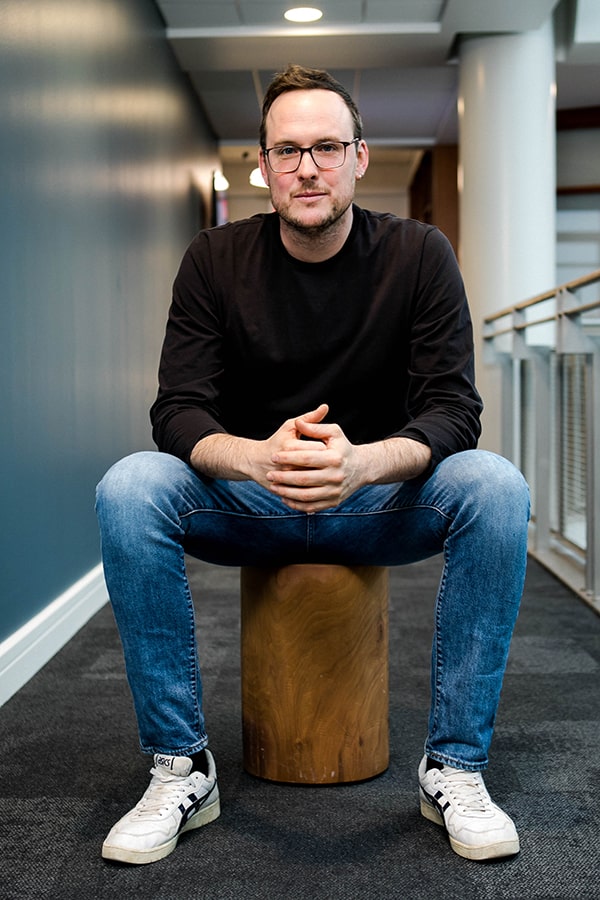Faculty Spotlight: Peter Schwardmann
By Stacy Kish
Peter Schwardmann, assistant professor in the Department of Social and Decision Sciences, is a behavioral economist who focuses his research on exploring how biased beliefs shape outcomes in markets and how we communicate.
Tell me about your scholarly work?
I am economist by training and broadly interested in how people come to hold beliefs about themselves and the world. The methods I use range from theory to experimentation to isolate systematic ways in which we end up having wrong beliefs.
How is your scholarly work adding to the greater field?
Economists are interested in describing and understanding how people make decisions. In the past, economists would assume that people make decisions in a rational way and using the best available information. My work informs economics by exploring how people actually make decisions. If we can uncover systematic ways in which people make decisions that are not rational, then we can develop better models and design better policies.
How did you become interested in this topic?
I came across Ziva Kunda’s 1990 article “The Case for Motivated Reasoning.” She argues that people see the world through a self-serving lens. We like to hold beliefs that make us less afraid of an uncertain future and that allow us to think well of ourselves. This resonated with me and I started to see motivated reasoning all around me. One strain of my work today is about finding robust and dependable evidence for motivated beliefs in field data and in the experimental laboratory.
What are you most excited to accomplish as a faculty member at CMU?
What excites me about working at CMU is how truly interdisciplinary my department is and how frequently you see collaborations across disciplines and departments. This opens up the possibility of addressing a whole new set of research questions. I want to be open to these interdisciplinary collaborations and hope to happen upon many happy accidents as result of them.
What are your goals for the next generation of scholars?
I am focused on doing the most honest and solid work I can do, while keeping my eyes open and learning. I guess I am not yet in a position to give advice to the next generation of scholars.
The Faculty Spotlight series features new and junior faculty at the Dietrich College of Humanities and Social Sciences at Carnegie Mellon University. Stay tuned for our next installment to learn more about the dynamic and engaging research and scholarly work being conducted in the college.
